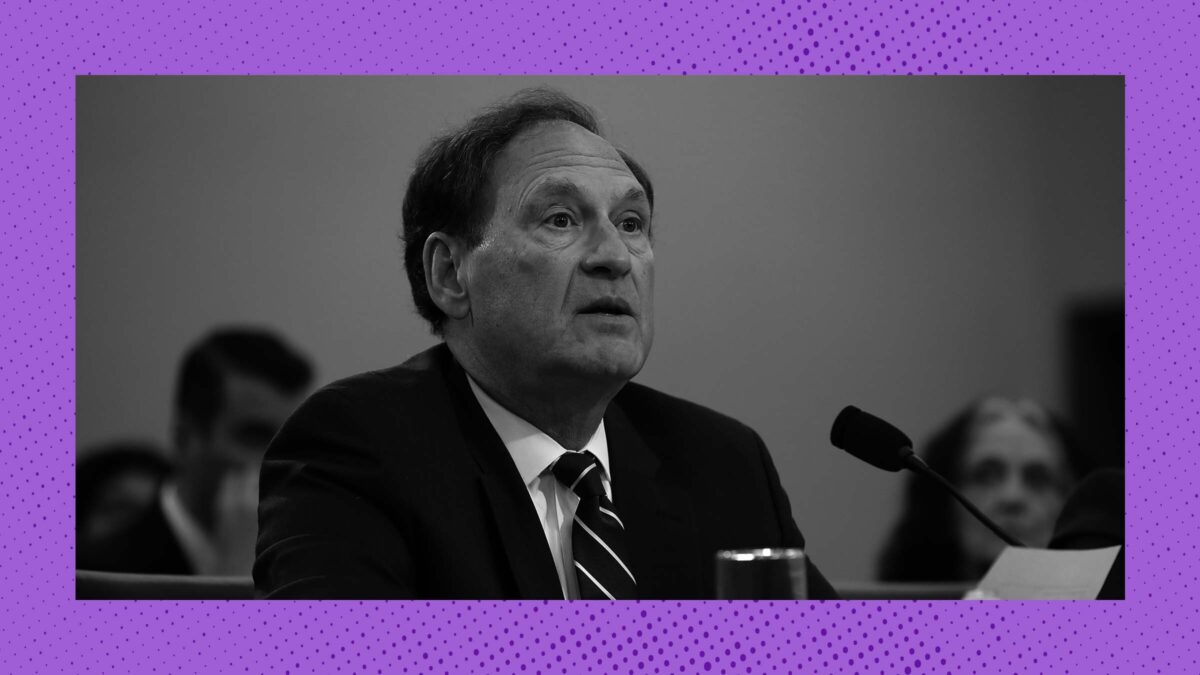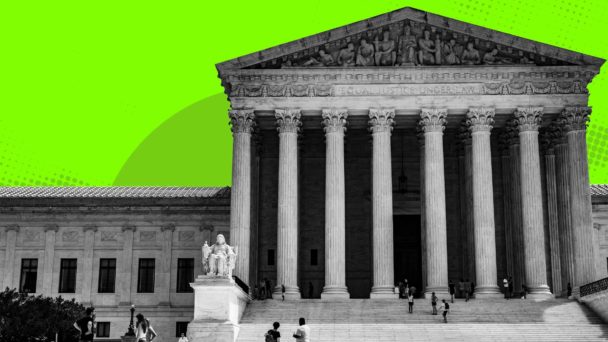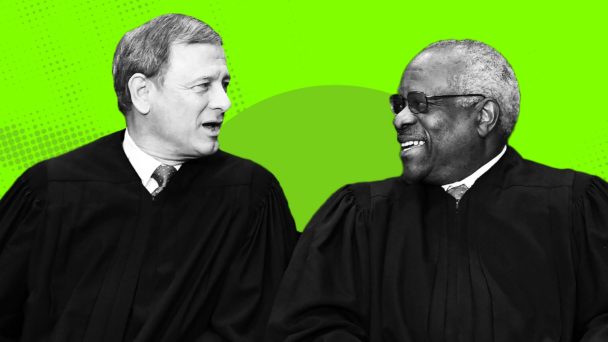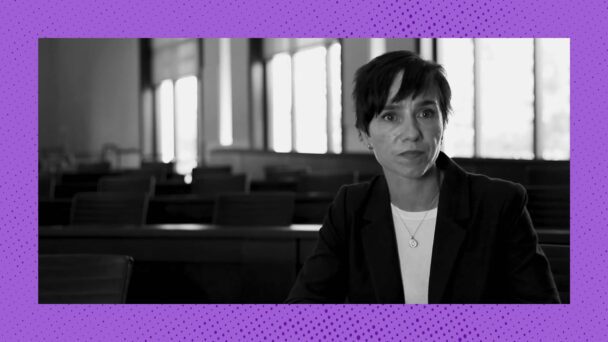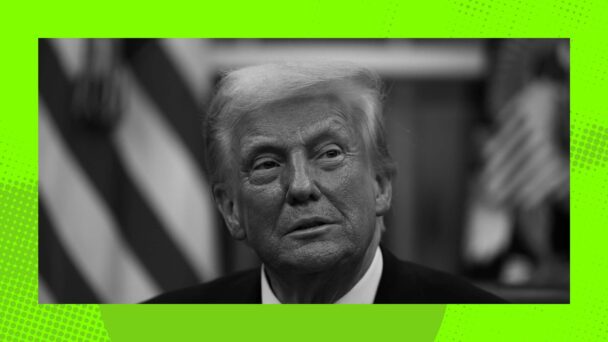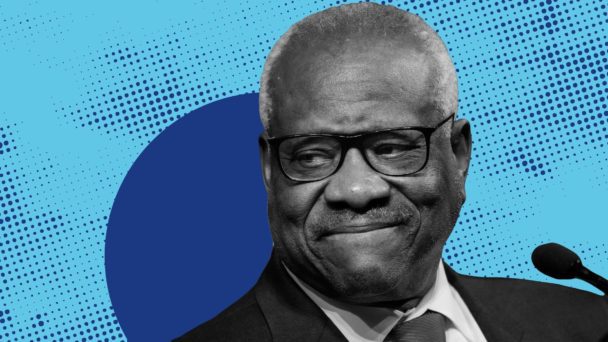In Mahmoud v. Taylor, the Supreme Court will answer a question that feels like it should not be difficult: whether the Constitution gives parents a de facto veto over any aspect of public education that does not, in their view, adequately support their religious beliefs. Because the Court is controlled by six conservative Christians who believe the most urgent crisis of our time is discrimination against conservative Christians, the activists who brought this case are going to get everything they asked for. The only remaining question is which justice will get the privilege of writing the opinion that negates schools’ responsibility to prepare students to live in a pluralistic society, and reimagines the First Amendment as a promise of religious supremacy instead.
Taylor is about the efforts of officials in Montgomery County, Maryland, to add children’s books that include LGBTQ characters to the language arts curriculum in the district’s elementary schools—one book per grade level. The district has a history of trying to align the material it teaches with the diversity of the community, and doing so comes with real educational benefits. According to an amicus brief from the American Psychological Association and the American Counseling Association, studies show that mere exposure to “inclusive curricula”—educational content that includes LGBTQ stories and figures—makes students safer at school, reduces bullying, fosters acceptance of all types of identity-based differences, leads to better academic outcomes, and reduces reports of depression and suicidality among LGBTQ youth.
At first, officials allowed parents to opt their children out of periods during which teachers were to provide instruction using these books. But when trying to track opt-out requests and shuffle kids in and out of classrooms and prepare a blizzard of alternative lesson plans proved unworkable in the state’s largest school district, officials decided to nix the opt-out policy. A coalition of Muslim, Catholic, and Ukrainian Orthodox parents sued, arguing that this policy interfered with their ability to direct their children’s religious education, and thus violated their rights under the Free Exercise Clause of the First Amendment.
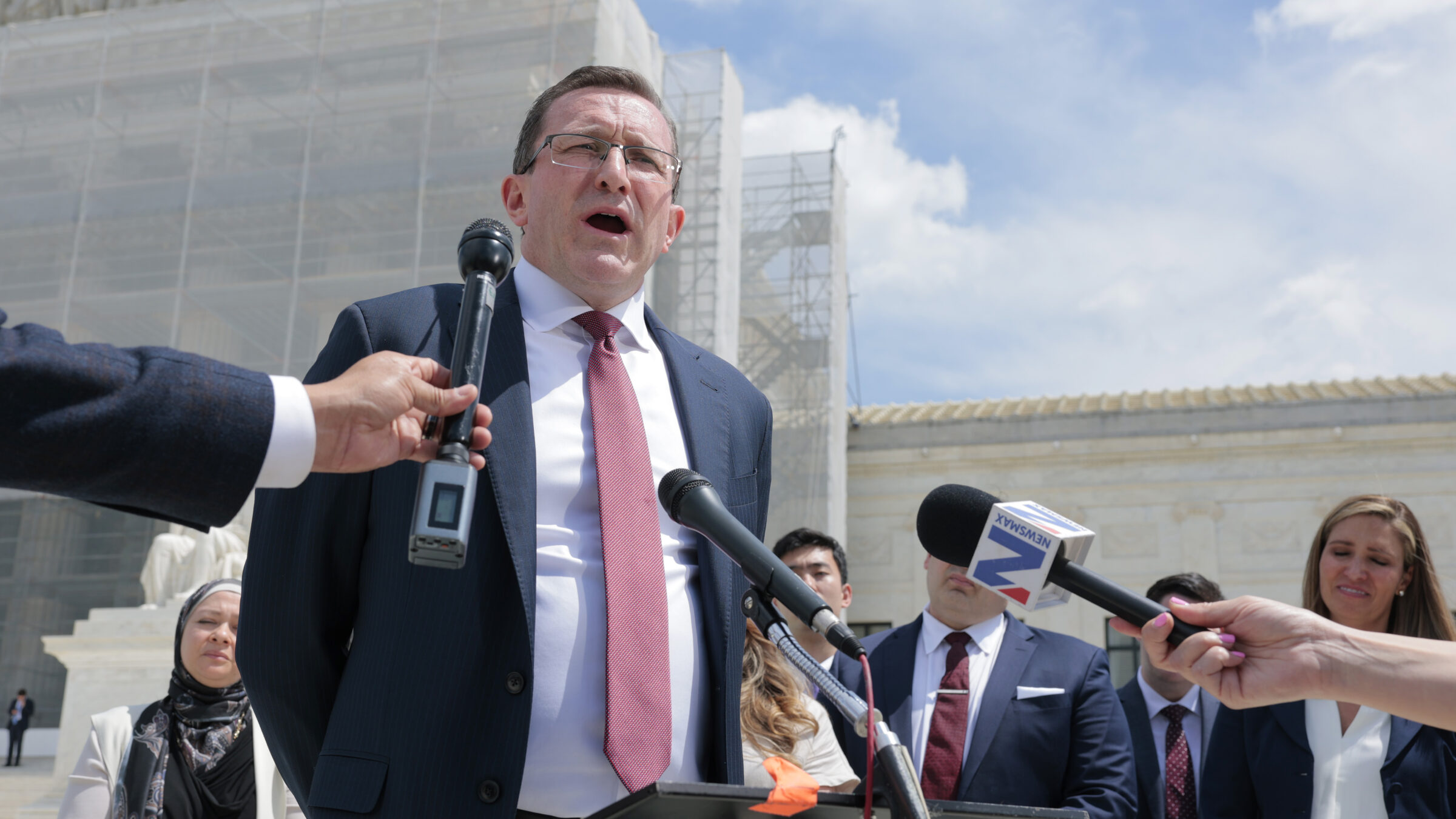
Becket lawyer Eric Baxter, who argued the case on behalf of the parents, speaks to reporters after oral argument (Photo by Anna Moneymaker/Getty Images)
The parents are represented by the Becket Center for Religious Liberty, which ostensibly litigates freedom-of-religion matters on an equal-opportunity basis, but is most famous for taking cases that advance the policy agenda of the Christian right. In 2014, for example, Becket successfully argued in Burwell v. Hobby Lobby Stores that for-profit companies owned by people with religious objections to contraceptives need not comply with federal law that would otherwise require them to provide employees with health insurance that covers it.
In their briefing in Taylor, Becket lawyers characterize the children’s books in Montgomery County as insidious tools of the woke agenda, “designed to indoctrinate Petitioners’ children against their religious beliefs.” By compelling parents to submit their children to instruction on “sensitive matters of gender and sexuality,” they continue, godless bureaucrats are interfering with parents’ ability to instill beliefs that are “crucial for their children’s ability to fulfill religious aspirations concerning marriage and family.”
If you only listened to oral argument on Tuesday, you would have no reason to doubt this premise. Justice Amy Coney Barrett characterized one of the books, which introduces the basic concept of being transgender using language children can understand, as “more about influence” and “how to think about sexuality,” in her view, than it is about merely “communicating respect” for transgender people. At one point, Justice Samuel Alito referred to a hypothetical classroom scenario in which students are exposed to the fact that the law allows same-sex couples to marry—an accurate statement of Supreme Court precedent—as imparting “moral principles that are highly objectionable to parents,” and thus legally questionable.
The Becket lawyers and conservative justices spent comparatively little time discussing the actual books that prompted this lawsuit. This is because doing so would make abundantly clear that the books are not, in fact, lurid smut that fuels the scourge of anti-Christian bigotry, but are instead pretty vanilla children’s stories that use LGBTQ characters or themes to teach standard lessons about courage, self-confidence, and respect. They are only objectionable if you find the very existence of LGBTQ people objectionable, and long for the ability to discriminate against them without enduring the indignity of being labeled a bigot.
One of the books, for example, is Uncle Bobby’s Wedding, a story approved for kindergartners. In it, a girl named Chloe learns of her beloved Uncle Bobby’s engagement, and feels anxious and sad that he won’t be spending as much time with her anymore. But after she gets to know Uncle Bobby’s spouse-to-be—together, the three of them go to the ballet, enjoy a sailboat ride, and roast marshmallows over a campfire—Chloe comes to understand that she is not losing her uncle, and instead gets to add another person to her loving family. The book wraps with Uncle Bobby embracing Chloe one more time, reassuring her that he isn’t going anywhere. “I promise we’ll still have fun together,” he says. “You’ll always be my sweet pea.”

The takeaway will be instantly recognizable to anyone with a passing familiarity with children’s books; as a coalition of authors and publishers puts it in an amicus brief, Uncle Bobby’s Wedding is a “universal tale of a challenge faced by all kids in all types of families.” It introduces kids to the inevitability of change, models strategies for navigating uncertainty, and shows how things that can feel scary at first often get resolved for the better. As noted in a different amicus brief, another book approved for the district’s curriculum, Uncle Peter’s Amazing Chinese Wedding, follows almost the exact same plot: A niece fears having to compete for her uncle’s affection as his wedding approaches, but ultimately learns to embrace her new aunt instead.
The reason conservative activists are upset about the fictional nuptials of Uncle Bobby and not Uncle Pete, of course, is that Uncle Bobby marries Uncle Jamie, a man, and not Aunt Jamie, a woman. At oral argument, Alito repeatedly argued that the “clear” implication of Uncle Bobby’s Wedding is not only that same-sex marriage exists, but that same-sex marriage is “a good thing,” too.
“It’s a message that a lot of people who hold on to traditional religious beliefs don’t agree with,” Alito said. “I don’t think anybody can read that and say, ‘Well, this is just telling children that there are occasions when men marry other men.’” Apparently to support his assertion that Uncle Bobby’s Wedding is pro-gay agitprop intended to indoctrinate young readers, Alito pointed out that Chloe’s mother “corrects” her when Chloe expresses “reservations” about the wedding, as if Alito, an adult man, understood Chloe to be concerned not about the possibility of seeing her uncle less often, but instead about the prospect of Uncle Bobby going to hell.
There are only two explanations for how Alito arrived at this conclusion: Either his brain is so hopelessly poisoned by homophobia masquerading as religion that he is incapable of correctly identifying the thuddingly obvious moral of a story written for five-year-olds, or he was simply lying about Uncle Bobby’s Wedding and hoping no one would notice. But Uncle Bobby’s Wedding does not teach children that same-sex marriage is morally right or politically desirable, or that it is morally wrong for people to disapprove of same-sex marriage on religious grounds. It is a picture book that acknowledges the simple fact that sometimes, in the real world, people of the same sex indeed fall in love and get married. The fact that Alito may find same-sex marriage objectionable does not make it any less likely that children will one day encounter it.
The objections to the other books follow the same pattern. Love, Violet is about a girl who feels shy around her first crush, who is a girl, but then summons the courage to make them a valentine. My Rainbow is about a trans girl who wants to have long hair, a wish her mother fulfills by sewing her a special wig. Pride Puppy is a rhyming alphabet book chronicling a family’s efforts to track down their lost dog, who runs amok through a local pride parade, before the author arrives at Z. (Shortly after the parents sued, officials decided to pull My Rainbow and Pride Parade from the list of books approved for instruction. Regrettably, this fact this did not stop Justice Neil Gorsuch bringing up Pride Puppy at oral argument to incorrectly assert that it exposes pre-K students to “bondage” and “sex workers.”)

I have read dozens of books like these to my own children: stories that help them process new emotions, and show them how to demonstrate love and respect for others, and perhaps teach them the letters of the alphabet in a format that doesn’t require me to play the fucking song on my phone for the billionth time. Nearly all of the characters in these books are straight and cisgender. Objections to storybooks that instead portray gay or transgender people in the course of imparting the same valuable life lessons are not, as Becket lawyers argue, objections to classroom instruction on “gender and sexuality.” They are rejections of the idea that anyone has a responsibility to treat gay and transgender people with dignity and respect.
The Court will decide Mahmoud v. Taylor in the midst of a wave of state and local campaigns to ban children’s books that conservative activists deem too woke to be legal. By reimagining this revanchist bigotry as a matter of First Amendment jurisprudence, the case provides the conservative justices with the chance to create an easily replicable framework for tipping the scales in favor of their ideological allies, with no readily apparent limit on what concessions agitators could extract. The parents downplay this possibility, for example, but if the Court allows homophobic parents, on religious grounds, to prevent their children from encountering books with LGBTQ characters, I have no idea why white supremacist parents couldn’t use the same argument to object to the interracial marriage portrayed in Uncle Bobby’s Wedding, or demand that their children be excluded from a biology lesson about how people of different races are, on average, 99.9 percent identical.
At oral argument, the parents’ lawyer framed Taylor as a case about freedom from state coercion, and asked the Court to give parents, not school boards, the “final say” on matters of faith. But a result that empowers parents to weaponize the First Amendment in this manner will allow them to bend public education to their religious beliefs, and purge the curriculum of any ideas they don’t like. This result will not protect the “free exercise” of religion. It will place religion above everything else.
